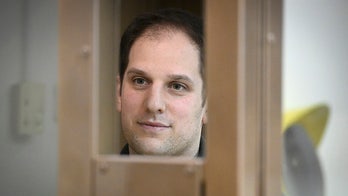A Columbia University student has denounced the university's administration for its handling of anti-Semitic messages by three deans, demanding further steps to confront the pervasive hatred on campus.
In the wake of three Columbia University deans being placed on administrative leave for allegedly sending antisemitic text messages, a student journalist has come forward to expose a deep-seated problem within the university's administration. Jonas Du, a student at the Ivy League institution, has vehemently criticized the university's lack of action in addressing anti-Semitism on campus.
"There is a rot within the administration that has allowed this hatred to flourish," Du asserts. "The university has failed in its duty to protect its students from discrimination and harassment."

Columbia Student Demands Action Against Anti-Semitism Amidst Administrative Rot
Du's condemnation stems from the recent revelation of antisemitic messages exchanged between the three deans, which sparked outrage and condemnation throughout the academic community. The university has since placed the deans on leave and launched an investigation into the matter.
However, Du believes that this is merely a superficial attempt to appease the public. "Suspending the deans is just a Band-Aid solution," he says. "It does not address the fundamental problem of anti-Semitism that permeates our campus culture."

Columbia Student Demands Action Against Anti-Semitism Amidst Administrative Rot
Du demands that Columbia University take concrete actions to combat anti-Semitism. "We need to see a comprehensive plan from the administration that outlines specific steps to create a safe and inclusive environment for all students, regardless of their religion or background."
These steps should include mandated anti-bias training for faculty and staff, increased funding for Jewish student life, and the establishment of a dedicated office to address anti-Semitism on campus. "We cannot tolerate any form of hatred or discrimination on our campus," Du emphasizes.
Du's call for action has resonated with many Columbia students who have come forward to share their own experiences of anti-Semitism on campus. Some have reported being subjected to slurs, threats, and intimidation by fellow students. Others have expressed concern about the university's lack of response to anti-Semitic incidents.
"The administration has a responsibility to protect us," says one student who requested anonymity. "But it feels like they are more interested in sweeping the problem under the rug than addressing it head-on."
The issue of anti-Semitism on American college campuses has gained increasing attention in recent years. A 2021 report by the Anti-Defamation League found that 40% of Jewish college students had experienced anti-Semitism in the past year, up from 37% in 2020.
Columbia University has been ranked among the top 100 universities with the most anti-Semitic incidents in the country. In 2021, the university was ranked 72nd by the ADL.
Du's demand for action has gained support from Jewish organizations and community leaders. The American Jewish Committee has called on Columbia University to adopt the International Holocaust Remembrance Alliance's definition of anti-Semitism and to create a task force to address the issue.
The university has not yet commented on Du's demands. However, it has issued a statement condemning anti-Semitism and stating that it is committed to creating an inclusive campus environment for all students.
"We will not tolerate anti-Semitism or any other form of hatred or discrimination," the statement reads. "We are committed to creating a campus where all students feel safe and respected."
Despite the university's statement, Du remains skeptical that the administration will take meaningful action to address anti-Semitism on campus. "They have had ample opportunity to do so, but they have failed to act," he says. "It is time for students, faculty, and alumni to hold them accountable."










